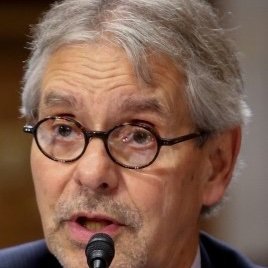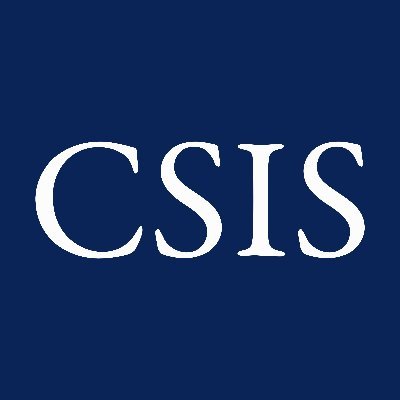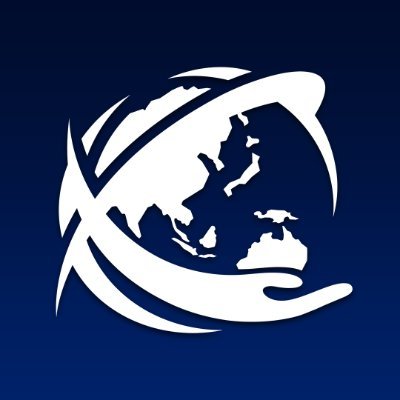
Dr. Prashanth Parameswaran
@ASEANWonk
Followers
7K
Following
2K
Media
78
Statuses
6K
Founder, ASEAN Wonk Newsletter | Sign up: https://t.co/SiapBl0Be3 | Fellow @TheWilsonCenter | Sr Columnist @Diplomat_APAC | Instructor @FSIatState |#ASEAN #Asia #Security
Washington DC and Asia
Joined May 2010
My new weekly newsletter on #Southeast Asia is out! “ASEAN Wonk BulletBrief” aims to be a dedicated space for global comprehensive conversations on regional security & foreign policy. You can subscribe at https://t.co/1DVJbqqj7O, and share widely if you like what you see! (1/6)
1
9
21
A positive and balanced review of my book, Putin's Russia and Southeast Asia: The Kremlin's Pivot to Asia and the Impact of the Russia-Ukraine War. Thanks @ASEANWonk! #Russia #SouthEastAsia #Putin
https://t.co/CIX0jtZ8cq
aseanwonk.com
New book forecasts trajectory of Russia's engagement with Southeast Asia and ASEAN under Vladimir Putin and implications for the Kremlin's own pivot to Asia.
0
1
2
Experts on Panel ⓵: U.S.-China Strategic Competition in Southeast Asia and the Pacific Islands Prashanth Parameswaran @ASEANWonk
@TheWilsonCenter Lynn Kuok @LynnKuok
@BrookingsInst Graeme Smith @GraemeKSmith
@ANUmedia
https://t.co/6ZyIZkx0Qc
uscc.gov
March 20, 2025
1
2
6
Honoured to be giving testimony at this hearing on Thursday (wee hours of Friday in Canberra) with two legitimate academic stars - @LynnKuok & @ASEANWonk. Tune in! https://t.co/nAsoI6QmOA
uscc.gov
March 20, 2025
1
1
6
Rising tensions in the Indo-Pacific demand strengthened cooperation and coordination between the US and regional partners, in areas such as critical maritime infrastructure construction and subsea cable planning Full article from @ASEANWonk below ⬇ https://t.co/n3bC6KNx4a
wilsoncenter.org
1
4
9
ASEAN Wonk (@ASEANWonk) reviews #VishwaShastra, including the implications for Southeast Asia.
aseanwonk.com
New book reveals how India should navigate its foreign policy challenges and opportunities in the Indo-Pacific and the wider world through a Vishwa Shastra.
2
3
15
“The current problem really is not us. I think the problem is actually because of the intensification of this rivalry between the United States and China, and unfortunately the spotlight is also shining on us now.” @ASEANWonk
https://t.co/1R4KzQ9OTb
1
1
1
🎧 @aikunming and @ASEANWonk join @SoutheastAsiaDC to discuss how President-elect Donald Trump’s return to office will impact Southeast Asia. Listen:
csis.org
Greg and Elina are joined by Brian Eyler and Prashanth Parameswaran to discuss how President-elect Donald Trump’s return to office will impact Southeast Asia.
4
3
9
Vietnam has been able to calibrate ties with major powers better than most nations, and has the distinction of being the only country in the world to host the leaders of China, the U.S. and Russia within the past year. Read more in our newest report by Dr. Prashanth Parameswaran
0
1
5
With Southeast Asia poised to become a global #economic powerhouse, nations like Thailand and Indonesia explore #BRICS and #OECD bids to bolster their geopolitical stance, says @ASEANWonk
orfonline.org
The interest of Southeast Asian states in BRICS should be viewed from a broader perspective of regional and global institutional flux
0
3
4
Philippines sides with Vietnam in South China Sea dispute, hoping for reciprocity @mariasiow quotes @lhhiep @bill_hayton @ASEANWonk
https://t.co/zI6hvGjXLi via @scmpnews
scmp.com
Analysts believe that while Vietnam appreciates the gesture, it is unlikely to influence Hanoi’s strategy in the disputed waters.
0
5
7
Harris or Trump: US Southeast Asia Policy Confronts Hard Realities @ASEANWonk @Diplomat_APAC
thediplomat.com
There is an urgent need to reinforce U.S. competitiveness in the region regardless of who emerges victorious at the November 5 election.
0
2
5
3/ 🔗 Read more on ASEAN Wonk: https://t.co/1ixb6PHQJN
#NuclearSecurity #SoutheastAsia #China #PacificForum #ASEANWonk
aseanwonk.com
Plus trilateral sideline meet; power pulse check; new nuclear roadmap; undersea minilateralism; coming cyber mechanism; big green setback; new investment facility and much, much more.
0
1
3
Very interesting interview with Dr. Dewi Anwar Fortuna by @ASEANWonk: "If the United States is serious about embedding its presence in Southeast Asia, it has to widen it beyond security because all Southeast Asian countries are extremely materialistic." https://t.co/8YVT8KQVp7
1
4
9
Upcoming event: Roles for the US and ASEAN in Promoting Regional Stability 📅Sept 25, 11am-12pm EST/Sept 26, 12-1AM KST 🔗Registration link: https://t.co/DotZcje9xa We're hosting a webinar on how the US and #ASEAN can collaborate to strengthen stability in the Asia-Pacific amid
1
2
10
@WahbaInstitute Global Fellow @ASEANWonk assesses the frustration #ASEAN nations have with the impacts of #StrategicCompetition, then outlines steps they can take to maintain autonomy & steps the US can take to advance mutual interests.
Global Fellow @ASEANWonk outlines the Global South's rising dissatisfaction with strategic competition, the potential geopolitical and economic effects, and how this affects the US and it's partners Read the full brief: https://t.co/Y5GjOM6fGj
0
2
3
Global Fellow @ASEANWonk outlines the Global South's rising dissatisfaction with strategic competition, the potential geopolitical and economic effects, and how this affects the US and it's partners Read the full brief: https://t.co/Y5GjOM6fGj
wilsoncenter.org
0
1
2
🆕 E21: "Why Should We Care About #ASEAN Centrality?" ft. Dr Prashanth Parameswaran, founder of @ASEANWonk newsletter A wide-ranging & fascinating conversation about the Association of Southeast Asian Nations — both its significance & challenges managing complex issues Links👇
1
9
12
Updates on the Power Dynamics at Play in the South China Sea Region. This week on China-Global South, @ASEANWonk joins Eric to discuss the latest developments in the South China Sea. Tune in for a breakdown of the Vientiane events and the ongoing stand-off between Beijing and
0
7
6
"Situating countries in a U.S.-China spectrum can simplify the multiplicity of choices – or misrepresent the “ends” of perceived “swings” – in an environment where other powers like Australia, India, and Japan also have a role." Great piece by @ASEANWonk:
thediplomat.com
The real choices facing the region lie in specific swing sectors, rather than the aggregate U.S.-China choices of a few designated swing states.
2
3
14



























